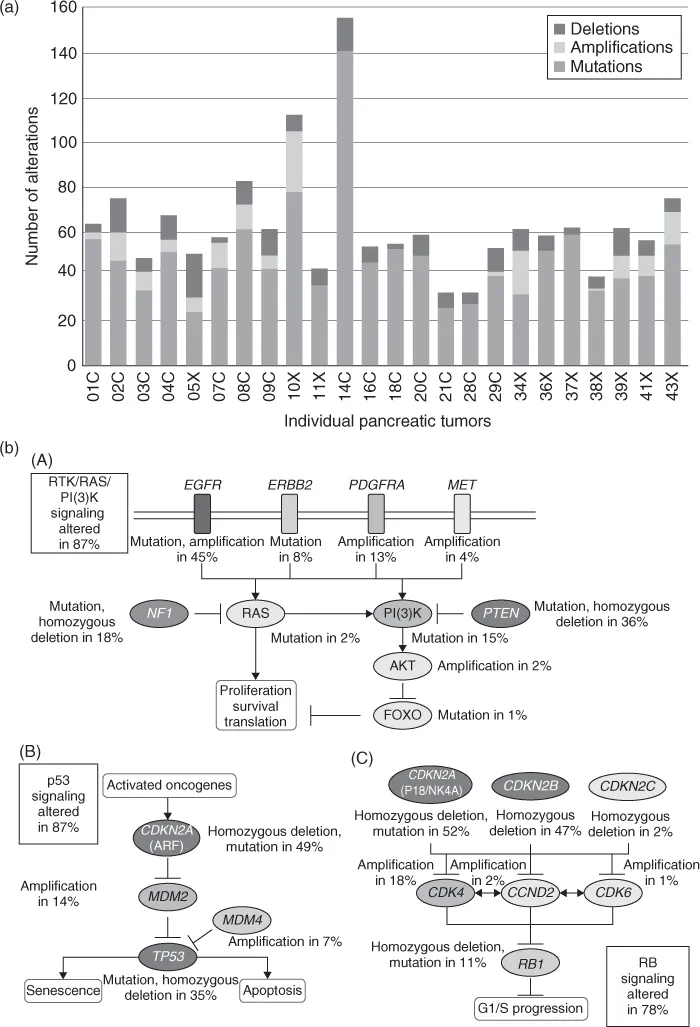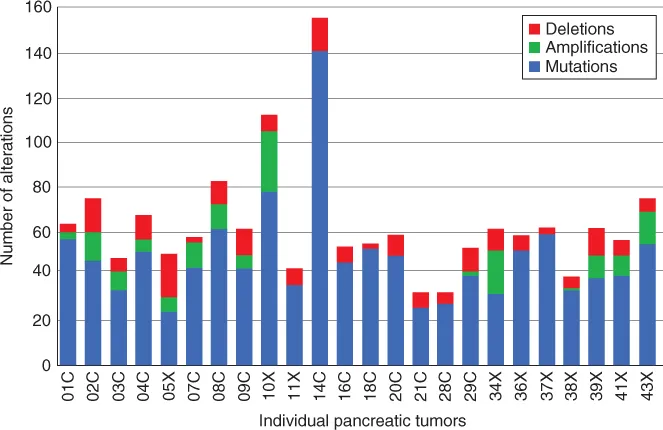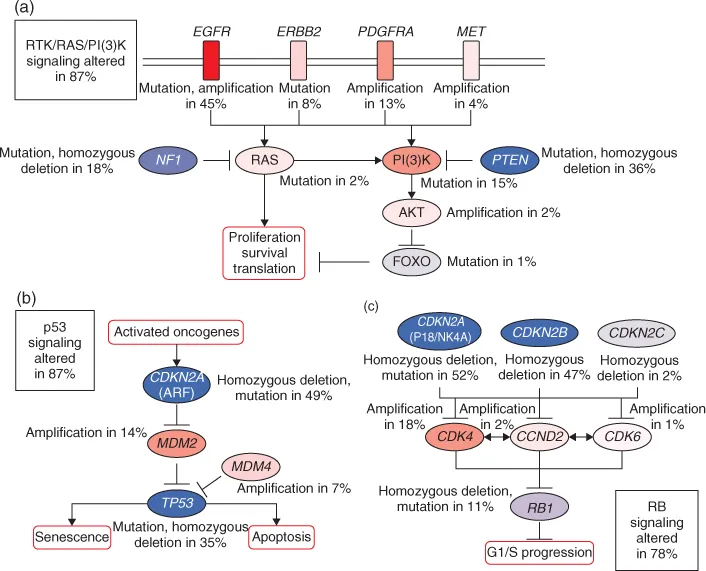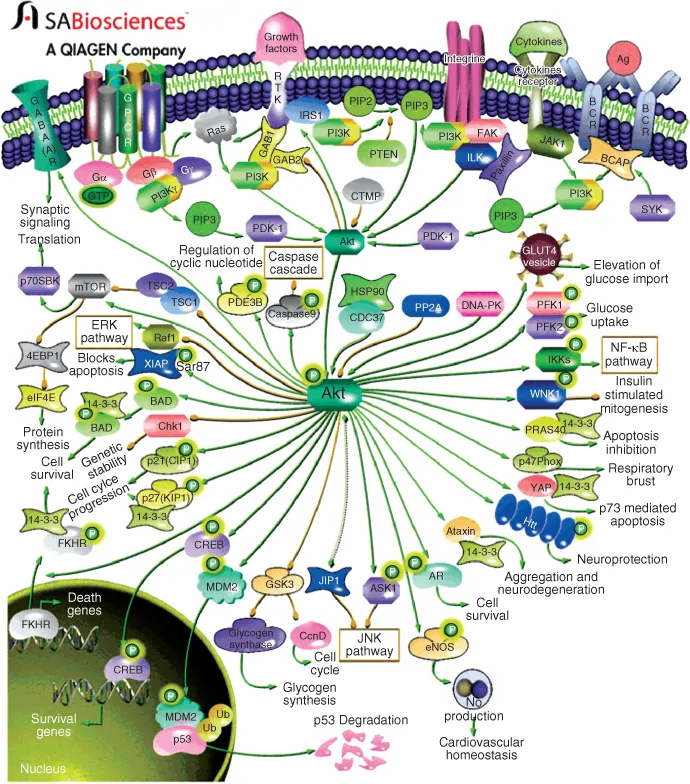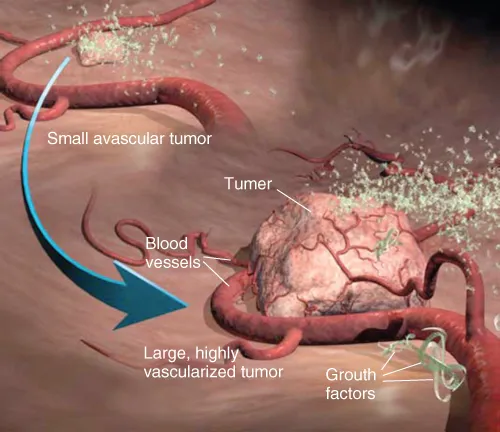![]()
Chapter 1
Images of Cancer
Cancer is a devastating disease both physically and emotionally and is projected to overtake heart disease as the leading killer of people in industrialized societies. Cancer is complex. The disease involves multiple time- and space-dependent changes in the health status of cells, which ultimately lead to malignant tumors. Abnormal cell growth (neoplasia) is the biological endpoint of the disease. Tumor cell invasion of surrounding tissues and spread to distant organs is the primary cause of morbidity and mortality in most cancer patients. This phenomenon is referred to as metastasis. The biological process by which normal cells are transformed into malignant cancer cells has been the subject of an enormous research effort in the biomedical sciences for more than a century. Despite this effort, cures or long-term management strategies for metastatic cancers are as challenging today as they were 40 years ago when President Richard M. Nixon declared a war on cancer with the National Cancer Act [1–3]. According to the American Cancer Society, 569,490 people died in the United States from cancer in 2010 [4]. This comes to about 1500 people each day! Remarkably, the number of deaths in 2002 was 555,500 providing quantitative evidence of no real progress in management over a 8-year period [5]. All one needs to do is read the obituary pages from any local newspaper to know that the “cancer war” is not going well.
How is it possible that we are not winning the cancer war when this disease is under constant investigation in many major pharmaceutical companies and in most leading medical centers throughout the world? One would think that effective nontoxic therapies would be readily available from all this attention. We constantly hear in the media of new breakthroughs in the fight against cancer, yet high profile celebrities and politicians continue to die from the disease. If the breakthroughs are real or meaningful, shouldnt the wealthy and powerful have access to any potential life-saving therapy? That these folks are just as vulnerable as the rest of us to the ravages of the disease clearly indicates that the war is not won. The road to the cancer front is littered with major breakthroughs that never materialized into effective solutions. A plateau in overall death rates for some cancers has been due more to better awareness and avoidance of risk factors, for example, smoking for lung cancer, than to any real advances in the management of systemic metastasis, the most deadly feature of the disease [6, 7]. Clearly, we are not wining the war on cancer, as Guy Faguet has emphasized [8].
1.1 How Cancer Is Viewed
The image of cancer depends on your perspective. It depends on whether you are a cancer patient, a friend or family member of a patient, an oncologist, a pathologist, a statistician, or a person who does basic research on the disease. The image of cancer can be framed from these various perspectives.
Figure 1.1a shows the number of genetic alterations detected through sequencing and copy number analyses in each of the 24 different pancreatic cancers. According to the figure, point mutations are more common in pancreatic cancer than are larger deletions or amplifications. The authors of this study, and of many similar studies, believe that the cataloguing of mutations found in various tumors will be important for disease identification and management. While cataloguing cancer genetic defects is interesting, it is important to recognize that the defects often vary from one neoplastic cell to another within the same tumor [12].
Figure 1.1b shows the percentage of genetic alterations found in brain tumors (glioblastoma multiforme). Similar kinds of alterations are found in pancreatic and ovarian cancers. Primary sequence alterations and significant copy number changes for components of the RTK/RAS/PI(3)K (A), p53 (B), and RB (C) signaling pathways are shown. The different shades of gray are indicative of different degrees of genetic alteration [13]. For each altered component of a particular pathway, the nature of the alteration and the percentage of tumors affected are indicated. Boxes contain the final percentages of glioblastomas containing alterations in at least one known component gene of the designated pathway. It is also interesting to note that no alterations in any of the pathways occur in about 15% of glioblastomas despite similarity in histological presentation. It remains unclear how these genomic alterations relate to the origin or progression of the disease.
Akt (v-Akt murine thymoma viral oncogene) or PKB (protein kinase-B) is a serine/threonine kinase that is involved in mediating various biological responses, such as inhibition of programmed cell death (apoptosis), stimulation of cell proliferation, and enhancement of tumor energy metabolism (Fig. 1.2). Akt expression is generally greater in cancer cells than in normal cells. Although targeting of Akt-related pathways is part of cancer drug development, the simple restriction of calorie intake will reduce Akt expression in tumors [14]. This image is synthesized from information on the molecular biology of cancer. I refer to these types of cancer images as balloons on strings. They convey an ordered arrangement of pathways for a disease that is biologically chaotic. SABiosciences is a QIAGEN company specializing in molecular array technologies that can help analyze gene expression changes, epigenomic patterns, microRNA expressions, and so on.
Angiogenesis involves the production of new blood vessels from existing blood vessels and involves interactions among numerous signaling molecules (Fig. 1.3). Cancer therapies that target angiogenesis are thought to help manage the disease. Besides expensive antiangiogenic cancer drugs such as bevacizumab (Avastin) [15], simple calorie restriction effectively targets angiogenesis in tumors [16, 17].
Figure 1.4 depicts the cancer im...

